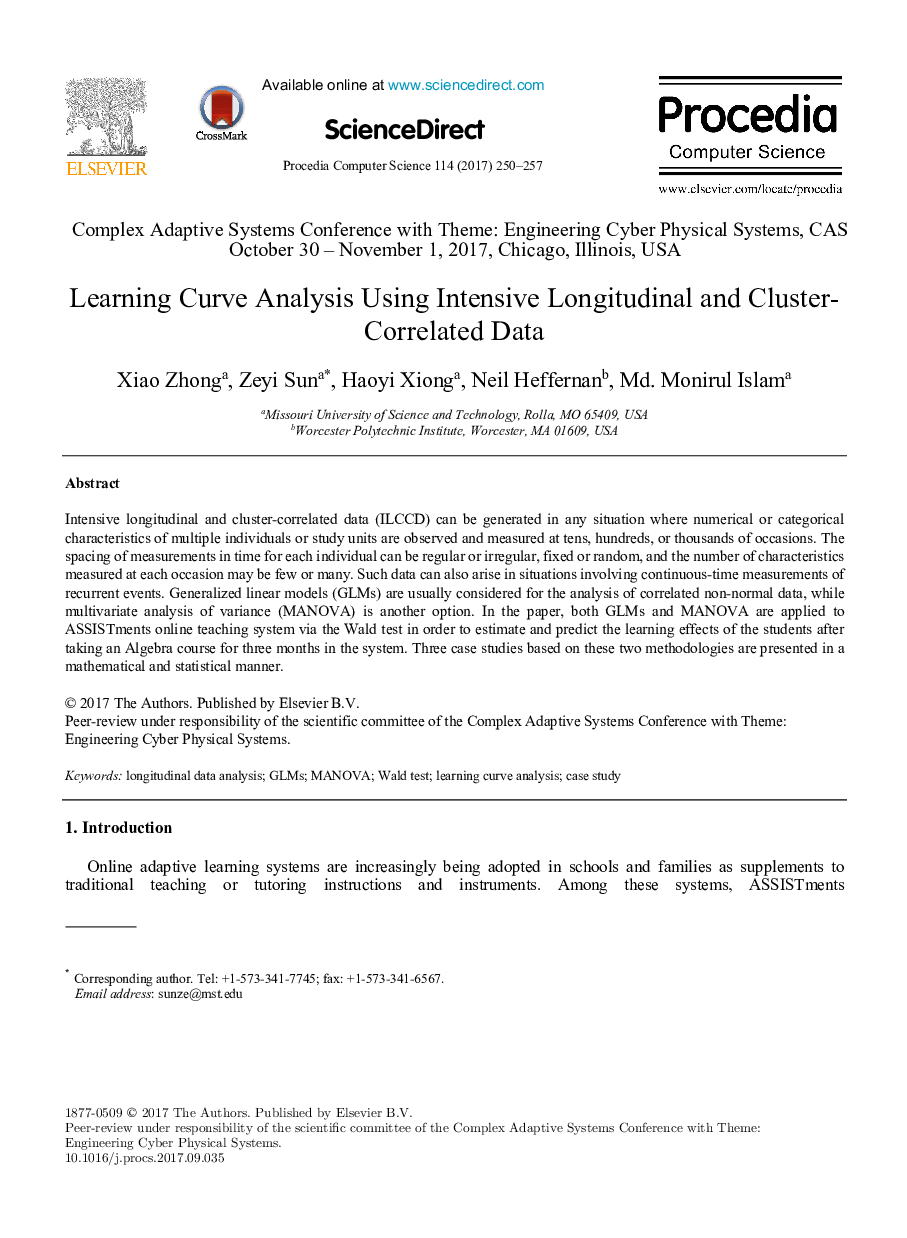| Article ID | Journal | Published Year | Pages | File Type |
|---|---|---|---|---|
| 4960536 | Procedia Computer Science | 2017 | 8 Pages |
Intensive longitudinal and cluster-correlated data (ILCCD) can be generated in any situation where numerical or categorical characteristics of multiple individuals or study units are observed and measured at tens, hundreds, or thousands of occasions. The spacing of measurements in time for each individual can be regular or irregular, fixed or random, and the number of characteristics measured at each occasion may be few or many. Such data can also arise in situations involving continuous-time measurements of recurrent events. Generalized linear models (GLMs) are usually considered for the analysis of correlated non-normal data, while multivariate analysis of variance (MANOVA) is another option. In the paper, both GLMs and MANOVA are applied to ASSISTments online teaching system via the Wald test in order to estimate and predict the learning effects of the students after taking an Algebra course for three months in the system. Three case studies based on these two methodologies are presented in a mathematical and statistical manner.
